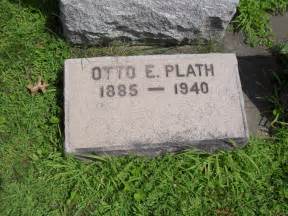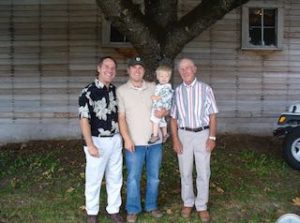“And as ye would that men should do to you, do ye also to them likewise.” Luke 6:31
 The “Golden Rule” used to be quoted frequently in almost all circles. When I was in elementary school I remember seeing it on the walls of many classrooms. Sure it was a Bible verse, but there was usually not a reference printed along with it, so I don’t think that was an issue. Actually, in that long off time, I doubt it would have been a problem if the Bible reference was added to the verse, back then we still sang “real” Christmas songs at our Christmas programs.
The “Golden Rule” used to be quoted frequently in almost all circles. When I was in elementary school I remember seeing it on the walls of many classrooms. Sure it was a Bible verse, but there was usually not a reference printed along with it, so I don’t think that was an issue. Actually, in that long off time, I doubt it would have been a problem if the Bible reference was added to the verse, back then we still sang “real” Christmas songs at our Christmas programs.
In today’s society we face a dilema. Almost all good and positive behavior is found somewhere in the Bible. To bring up those principles in a school or government setting we must somehow disguise them so they are not from the Bible. If secularists or humanists get wind that Biblical teaching is anywhere in the schools, they pull out the separation card and through a variety of pressures
shut things down. So sadly, many schools disguise the wise teachings of the Word so much that they lose their “wiseness” or the schools eliminate teaching godly principles completely, leaving behavior in a huge gray area that no one can really define.
But principles such as the one found in today’s scripture can be invaluable as a guideline in many given situations. We can keep it close to us so that we can refer to it when a “what should I do” question arises. How should we handle criticism, requests for help, rumors we hear, treatment of others, needs found around us? If we keep God’s instruction close to our hearts, we will have something to turn to when we face critical decisions in our daily relationships with others.
When I coached I gave a guideline to all my coaches. I used to hate seeing coaches yelling at kids for something that was ultimately the coach’s own fault. I would attend games and see coaches go crazy because a kid missed a tackle, but I knew that that coach never spent time in practice on tackling drills. He was embarrassed by the kid’s performance and had to let everyone know that it  was the athlete’s fault, so the coach made a big show of yelling at the “offending” athlete.
was the athlete’s fault, so the coach made a big show of yelling at the “offending” athlete.
Because I saw this way too often, I put together what became known as Rick’s Rules of Reprimand. Before any of my coaches could “loudly” correct a kid, I ask them to ask themselves five quick questions. If all were answered “yes” they could proceed to correcting, but if there was a “no” in there, it was our job to correct ourselves by taking care of the oversight that we had allowed.
Here were questions they had to ask if a player failed to do something correctly: 1) Has he heard it? 2) Has he heard it enough? 3) Has he done it? 4) Has he done it enough? 5) Is he capable of doing what I am asking him to do? Many times I saw coaches not yell at kids because they realized that what the kid was asked to do had not been covered enough or he was even incapable of doing what was ask. This was a form of the Golden Rule. Would any of my coaches like to be yelled at for something they had not been properly prepared for- I doubt it. So we were just extending that same respect to the kids themselves.
What would the world be like if we could openly teach the tenets of  God’s Word without disguise. All we need to know about our relationship with ourselves, others, and God are found there. No one desires to be treated badly. No one relishes abuse by others. If all would keep that in mind when making relational decisions, the world would be a different place. Other religions have their form of the Golden Rule, but most are in the negative. “Don’t do to others what you would not want them doing to you.” The Bible takes it one step further into the place of service. Instead of not doing something vengeful, take the initiative and do something good. Don’t be passive and just not seek revenge, be active and strive to treat others kindly.
God’s Word without disguise. All we need to know about our relationship with ourselves, others, and God are found there. No one desires to be treated badly. No one relishes abuse by others. If all would keep that in mind when making relational decisions, the world would be a different place. Other religions have their form of the Golden Rule, but most are in the negative. “Don’t do to others what you would not want them doing to you.” The Bible takes it one step further into the place of service. Instead of not doing something vengeful, take the initiative and do something good. Don’t be passive and just not seek revenge, be active and strive to treat others kindly.
We can keep the Golden Rule in its negative form without lifting a finger. If we do not want others to steal from us, we only need to refrain from stealing. But doing the right thing rather than just avoiding the wrong is much more demanding. If we want others to love us, we must first love them. So the Golden Rule of the Word does not just say, “Don’t steal” but “Give.” We live in a world that is amazed when someone does the right thing. Movies have been made and books have been written about a singular display of honesty. Why?  Because that kind of behavior is not expected. The words of Luke 6:31 have become passe’.
Because that kind of behavior is not expected. The words of Luke 6:31 have become passe’.
During different seasons the natives in New Guinea have times of rituals, songs, and dances. They work themselves up into a frenzy and the whole “celebration” culminates in what are called “murder songs,” in which they shout before God the names of the people they wish to kill. When the natives became Christian, they retained some of the customs and that ritual, However, in the murder songs, they no longer shouted the names of the people they hated, but the names of the sins they hated, and called on God to destroy them. A pagan custom had been captured for Christ.
What would be eliminated if the Golden Rule was demonstrated?  There would be no unkind words, no murder, no gossip or slander, no dishonesty or deception, no betrayal, no unforgiveness. Unfortunately we will have to wait for that world until we reach heaven. We can, with the strength of the Holy Spirit, do our best to make our little section of the world as much like heaven as possible, but in this fallen world it is not entirely possible. Fortunately, when God looks at us, He only asks us to be responsible for that which we have control over. We should draw a circle around ourselves and ask the Lord to help everyone in that circle live for Him. Maybe in that way, we can help others draw their own circles, as well.
There would be no unkind words, no murder, no gossip or slander, no dishonesty or deception, no betrayal, no unforgiveness. Unfortunately we will have to wait for that world until we reach heaven. We can, with the strength of the Holy Spirit, do our best to make our little section of the world as much like heaven as possible, but in this fallen world it is not entirely possible. Fortunately, when God looks at us, He only asks us to be responsible for that which we have control over. We should draw a circle around ourselves and ask the Lord to help everyone in that circle live for Him. Maybe in that way, we can help others draw their own circles, as well.









